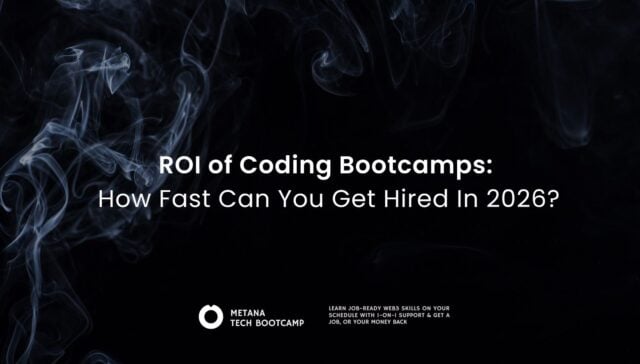TL;DR
Software engineering can be challenging but is achievable with dedication. You don’t necessarily need a degree…bootcamps and self-learning are valid alternatives. The career path ranges from junior to senior roles, with specialization options in fields like AI and cybersecurity. With continuous learning and problem-solving skills, software engineering offers great growth and earning potential.
How hard can Software Engineering be?
Software engineering can be hard at first, especially for those with no prior programming experience or technical background. However, with the right resources; such as courses, bootcamps, and online tutorials, learning to code and becoming a software engineer is achievable for most people.
Being a great software engineer requires more than just coding skills. A strong software engineer is also a problem solver, a team player, and someone who can think logically. While technical skills are crucial, soft skills like communication, critical thinking, and project management also play a big role in advancing in this field.
If the hardest part of software engineering is learning to code, then the good news is that there are countless resources available to make this process easier. From accredited college courses and coding bootcamps to self-paced learning through web tutorials and podcasts, aspiring software engineers have a variety of paths to choose from.
Is It Hard to Become a Software Engineer?
It depends on your path and dedication. There’s no single way to become a software engineer, and the learning experience varies widely:
Paths to Entry:
- Computer Science Degree: Offers structure and theory but takes 3–4 years.
- Coding Bootcamps: Intensive and fast-paced (3–6 months), often job-focused.
- Self-Taught: Flexible and affordable but requires high discipline and strong motivation.
Common Challenges:
- Staying consistent without external accountability
- Applying abstract concepts to real-world projects
- Building a portfolio or landing your first internship or job
“When I was building MConverter, I realized that the hardest part wasn’t just writing code; it was pushing through the days when nothing worked and progress felt invisible. That consistency, even during setbacks, is what shapes real software engineers”, shares Mihael Trifonov, Co-Founder of MConverter.
Time Commitment:
For most learners, it takes 6–12 months of serious effort to become job-ready, assuming at least 15–20 hours per week of focused learning and building.
In short: It’s hard at first, but manageable over time with consistent effort.
Career Progression in Software Engineering
Software engineering careers progress through different levels based on experience and expertise. Engineers typically start at an entry-level position and gradually take on more responsibilities as they gain experience. Below is a general breakdown of career progression in software engineering:
| Level | Years of Experience | Responsibilities |
|---|---|---|
| Junior Engineer | 1-3 years | Focuses on coding, debugging, and troubleshooting under supervision. Works on smaller projects and collaborates closely with senior engineers. |
| Mid-Level Engineer | 4-6 years | Works on larger projects, optimizes software performance, and starts mentoring junior engineers. Expected to work more independently and contribute to architectural decisions. |
| Senior Engineer | 7+ years | Leads projects, makes high-level technical decisions, oversees development processes, and often mentors junior engineers. May take on managerial responsibilities and interact with stakeholders. |
Regardless of level, software engineers can specialize in various fields such as front-end development, artificial intelligence, systems engineering, or project management. Each path offers unique challenges and opportunities for growth. For instance, the average salary in Mexico for a software engineer is $5,500 and can vary depending on the chosen specialization and level of experience.
Yes, software engineering can be challenging, especially for beginners. It requires a mix of technical skills, logical thinking, and adaptability. However, it is far from impossible. With dedication, practice, and the right learning resources, many people successfully transition into this field.
One of the most effective ways to get into the field for those just starting out is by gaining real-world experience. Exploring opportunities like remote C++ internships can help you apply your knowledge in a practical environment and work with related technologies or modern industry frameworks. Taking on such roles can deepen your understanding of software engineering and help ease your path into the industry.
While coding and problem-solving can be complex, a wealth of structured learning materials—from degrees and bootcamps to online courses—make it more accessible than ever. Like any skill, the more time and effort you invest, the easier it becomes over time.
If you’re willing to embrace continuous learning and tackle challenges head-on, software engineering is absolutely worth the effort.
If you’re serious about becoming a software engineer but don’t want to figure it all out alone, Metana’s Software Engineering Bootcamp can get you job ready with expert mentorship, real-world projects, and a hands-on curriculum.
FAQs
Is software engineering hard to learn?
- It can be challenging, but with dedication and the right resources, most people can learn it over time.
Do I need a degree to become a software engineer?
- No, you can learn through coding bootcamps, online courses, or self-study.
How long does it take to become a software engineer?
- It depends. A degree takes about 4 years, while a bootcamp can take 3 to 9 months. Self-study varies based on effort.
What skills do I need?
- Programming, problem-solving, and teamwork. Knowledge of languages like Python, Java, or JavaScript is also helpful.
What are the career growth opportunities?
- You can progress from junior to senior roles and specialize in areas like AI, cloud computing, or cybersecurity.







